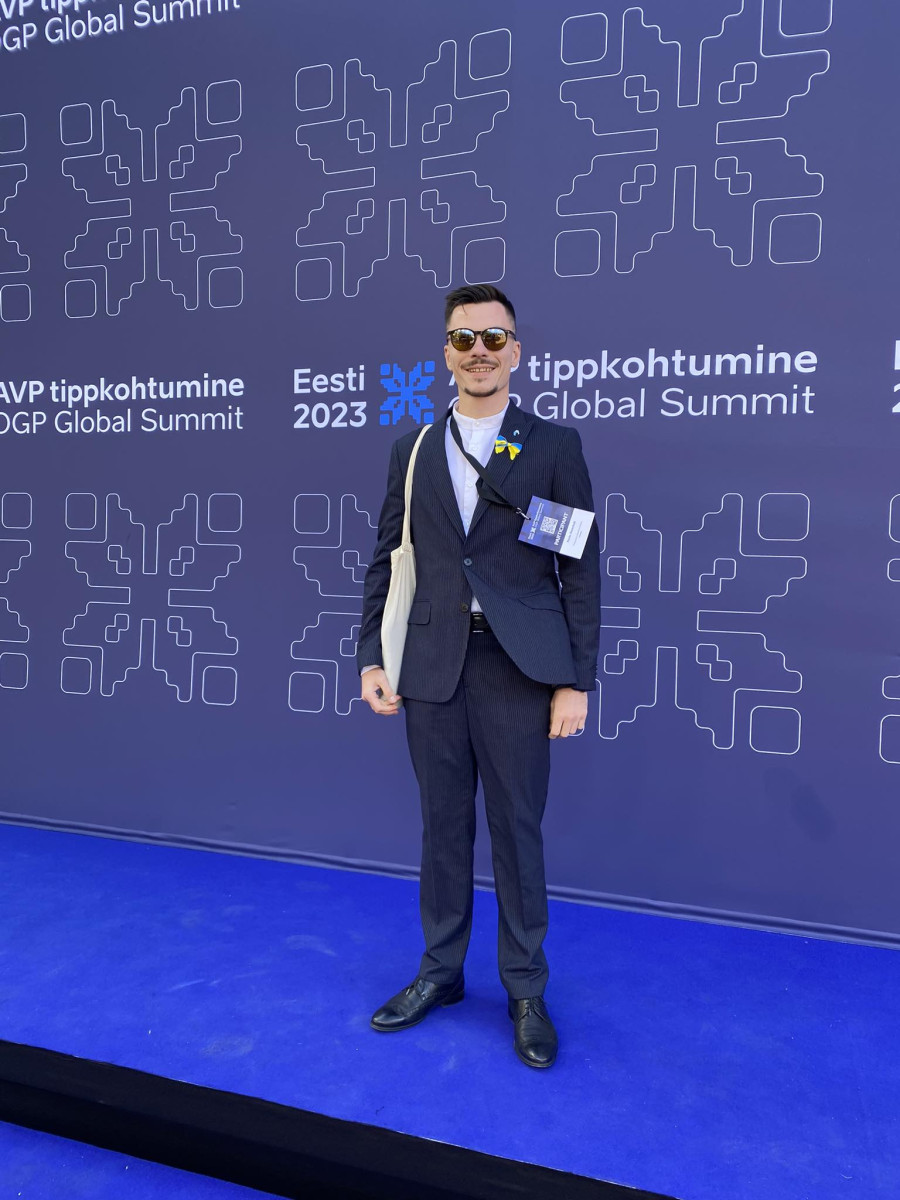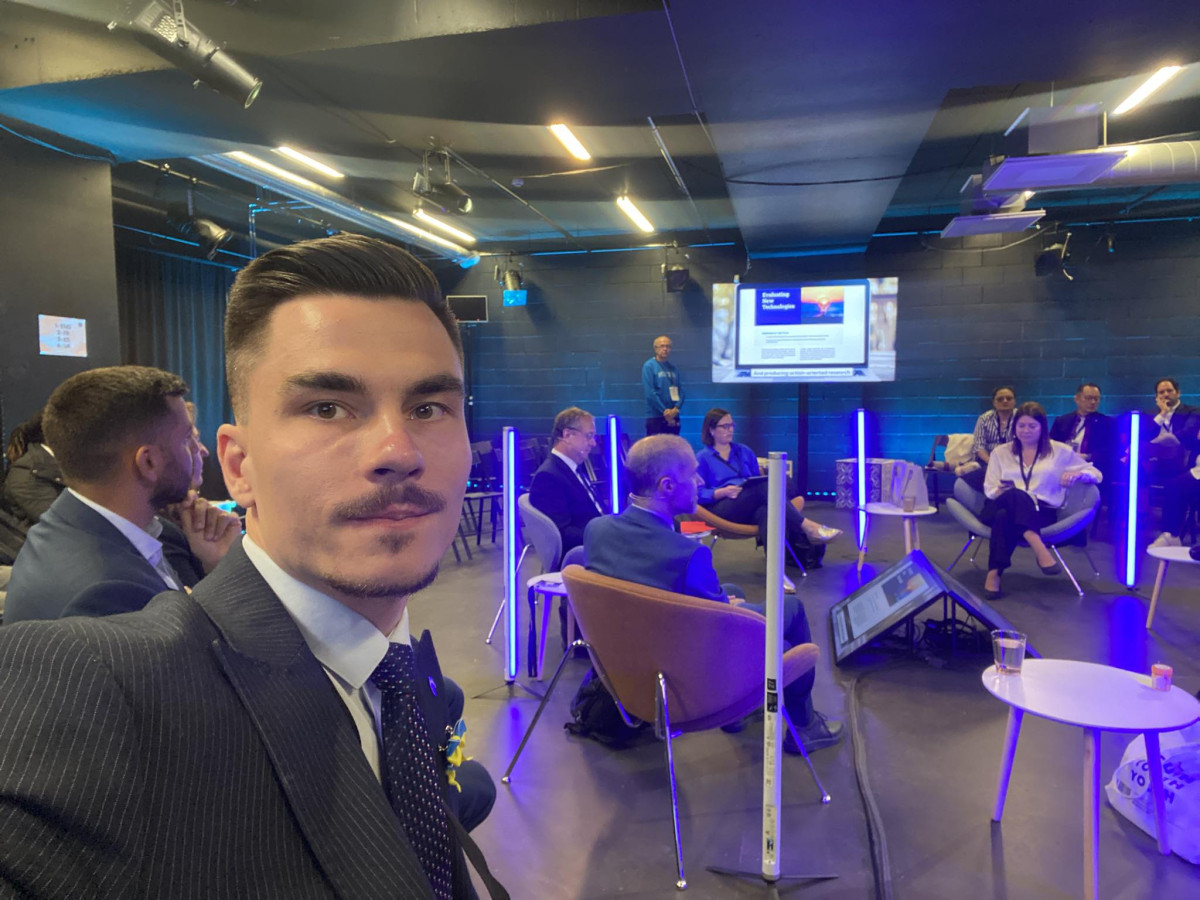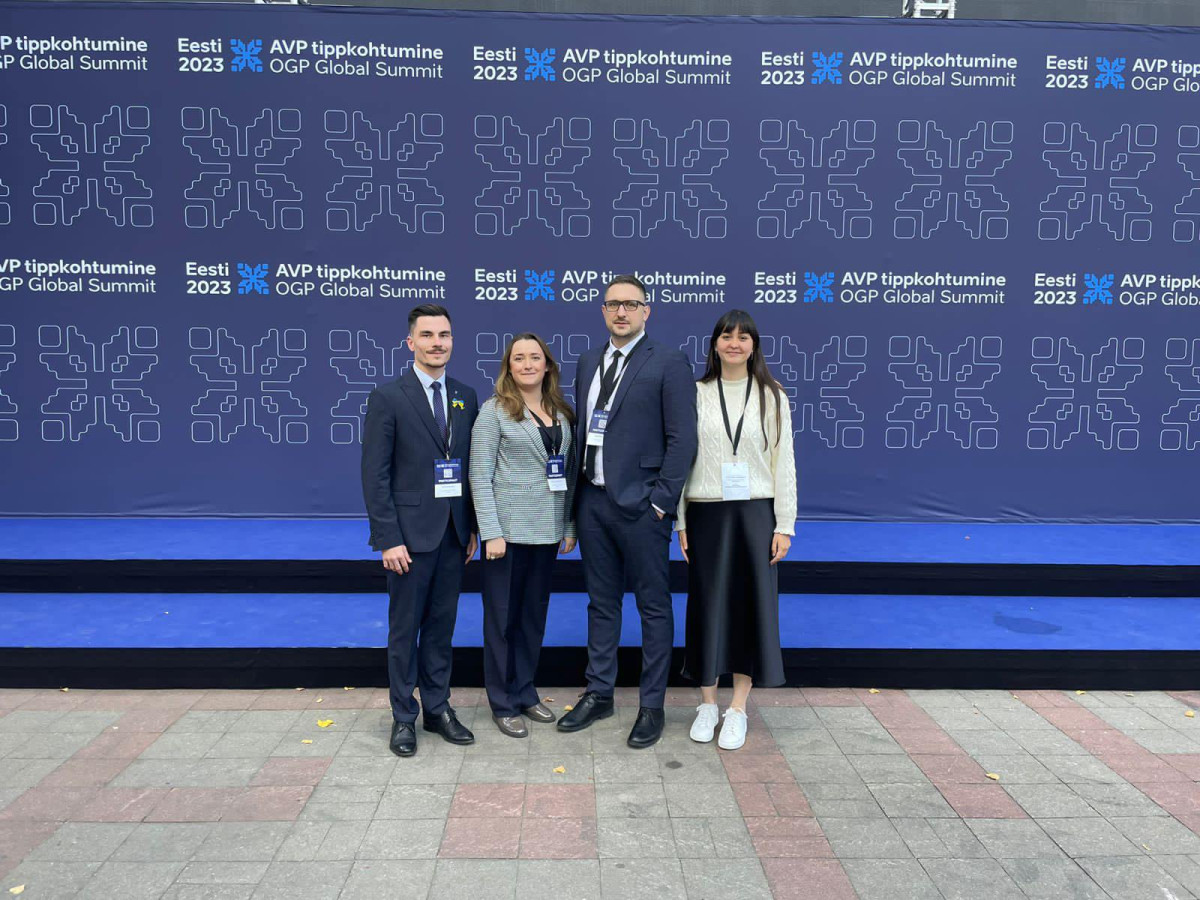A few thoughts on the results of the OGP Summit, which took place in Tallinn last week.
Recently, I was lucky enough to attend the OGP Summit in Tallinn. The conference within the framework of the Open Government Partnership is not a new event, but this year, it was special for us, Ukrainians, because this was the first time the event took place after the full-scale invasion of Ukraine by Russia. Government leaders and activists from 75 countries paid a lot of attention to our problems, challenges, and achievements.
But while at different levels, the transparency of our government was discussed, especially in the process of reconstruction, I was personally surprised at a thing that was not so noticeable. This is probably an achievement whose scale we are not yet able to fully appreciate and understand, while for many other countries this issue is very acute. I am talking about the openness of the judiciary.
No, I will not in any way claim that our judicial system works perfectly; of course, it does not, and we still have a lot of work to do. But we already have a vivid example — the High Anti-Corruption Court, whose 4-year practice can be considered advanced.
In particular, representatives of the public sector and government officials from Latin America stressed that the court’s website should be accessible, it should be clear from it when and where the court hearings will take place. Having clear court decisions in hand would also be nice, let alone being informed about such decisions from the court itself as the primary source of information.
Here Ukraine really proves progressive! We have an open register of court decisions; courts have their own websites. Yes, the martial law imposes certain restrictions on the promptness and completeness of publishing this information, and the process of overcoming the rudiments and habits of the Soviet system has not yet been completed. But there is already a practice of timely communication about the results of the trial and broadcasting of court hearings. Indeed, not all, but it is a gradual process. Many of our colleagues from other countries would consider this result a real luxury.
Yes, the experience of the HACC needs to be shared. But it should be considered that its creation was accompanied by a complex and thorough selection of judges; the Ukrainian civil society had demanded its publicity and transparency even before the launch of the Anti-Corruption Court in September 2019.
By the way, it is also worth considering the challenges that are common for us and for other countries in the development of justice.
One of the most popular topics the participants of the conference in Tallinn talked about was the access and use of information about the trial, for example, regarding the results of court hearings, sentences imposed, or even court records. Analyzing an array of data on sentences imposed in other cases in conjunction with other indicators can help judges in choosing the sanction in the case they are hearing.
We have an open register of court decisions; courts have their own websites. Yes, the martial law imposes certain restrictions on the promptness and completeness of publishing this information. Many of our colleagues from other countries would consider this result a real luxury.
Pavlo Demchuk
In this context, one cannot but mention that the State Judicial Administration did not update the register of court decisions in the format of an open data set, despite the fact that it should do so daily. This makes it difficult to work with such information and automate its use.
Moreover, a lot of attention in different countries is paid to the strategy of justice development. For example, the representative of the Supreme Court of the Republic of the Philippines mentioned the Strategic Plan for Judicial Innovation many times, which aims to create a new framework and introduce new approaches, but at the same time develop and reorient the existing ones. This, in her opinion, will help achieve the implementation of justice that responds to requests and operates in real time.
It is interesting that we in Ukraine have also done a lot in these processes, but this progress is very difficult, and the experience of other countries and other expert organizations can help us, while our experience will help them. Of course, foreign experience should be processed in a meaningful way and best practices should be used rationally.
We are in for a lot of work; this is no secret either for us or for other countries whose representatives I happened to talk to at the summit in Tallinn. But we know where we want to go, and we know WHAT to do. It is the matter of implementation that remains. Even if we rely on intermediate achievements in such processes, the end point becomes much more attainable.
Moreover, a lot of attention in different countries is paid to the strategy of justice development. For example, the representative of the Supreme Court of the Republic of the Philippines mentioned the Strategic Plan for Judicial Innovation many times, which aims to create a new framework and introduce new approaches, but at the same time develop and reorient the existing ones.
Pavlo Demchuk
This publication was prepared with the financial support of the European Union. Its content is the sole responsibility of Transparency International Ukraine and does not necessarily reflect the views of the European Union.









